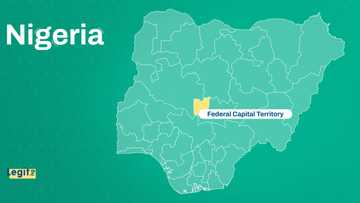Botswana President Concedes Defeat After 60 Years of Party in Power
- Botswana President Mokgweetsi Masisi has conceded defeat in the recent general election in the country
- The election marked the end of Masisi's sixty years reign since he is the leader of the ruling party, BDP
- While the election was yet to be completed, the opposition parties, UDC and BPF, were already gathering the majority seats
CHECK OUT: Education is Your Right! Don’t Let Social Norms Hold You Back. Learn Online with LEGIT. Enroll Now!
President Mokgweetsi Masisi of Botswana has conceded defeat in the country's recent general election, marking the end of the Botswana Democratic Party's (BDP) six-decade rule.
The BDP has held a majority of seats in the National Assembly without interruption since the first election under universal suffrage in 1965. However, the latest election results indicate a significant shift in the country's political landscape.

Source: Twitter
How ruling party was defeated in Botswana
The election, held on October 30, 2024, saw 61 seats of the National Assembly and 609 local council seats up for grabs. The Umbrella for Democratic Change (UDC) and the Botswana Patriotic Front (BPF) were among the opposition parties that contested the election. While the exact results are not yet available, President Masisi's concession speech suggests that the opposition has made significant gains.
PAY ATTENTION: Legit.ng Needs Your Help! Take our Survey Now and See Improvements at LEGIT.NG Tomorrow
The Guardian reported that the BDP's long-standing dominance in Botswana's politics has been attributed to its ability to maintain a strong support base in the rural areas. However, the opposition's gains in the recent election may indicate a growing dissatisfaction with the ruling party's policies. The UDC and BPF have campaigned on promises to address issues such as economic inequality, unemployment, and corruption.
The election also saw some significant changes in the country's electoral system. A Delimitation Commission was established to redistribute the constituencies of the National Assembly, resulting in the creation of four new seats. Additionally, supplementary voter registration periods were introduced to increase voter turnout.
Source: Legit.ng



